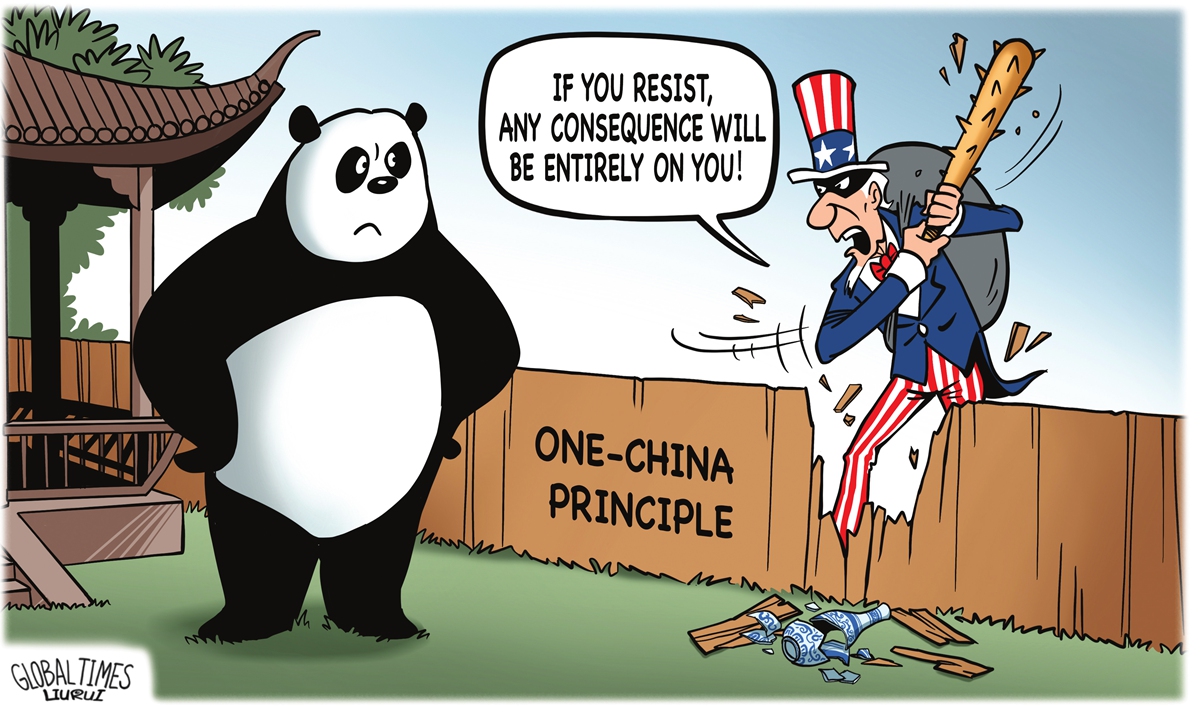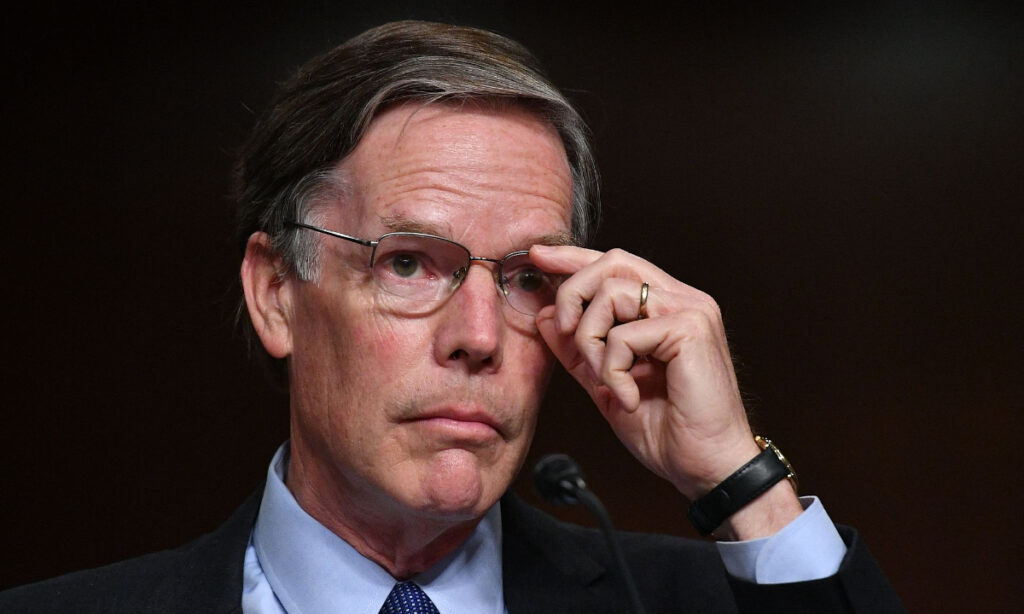On Friday, US Ambassador to China Nicholas Burns slammed China for “overreacting” to US House Speaker Nancy Pelosi’s reckless Taiwan visit and “manufacturing crisis” in the Taiwan Straits, in his first TV interview since assuming office in Beijing six months ago. He said, “The issue is – one government is going to react in an aggressive and violent way to disturb the peace? That has to concern everybody in the world.” He also claimed that China needs to convince the rest of the world it is not an “agent of instability” and will act peacefully in the Taiwan Strait.
Burns’ comments came at a time when China-US relations have soured over Pelosi’s provocative visit to Taiwan, which is extremely harmful and regrettable. Burns used to serve as US ambassador to NATO and has working experience in Europe. He knows deep down that the way that the US establishes its security dominance in Europe is by creating crises and inciting opposition against Russia. It appears the US is seeking to replicate this model in the Asia-Pacific region, trying to create crises and incite confrontation.
It’s worth noting that as an ambassador, Burns makes remarks that do not just represent his personal views, but essentially reflect views of the US government. Burns’ remarks therefore in turn reveal US government’s misunderstanding from top to bottom, that is, the status quo in the Taiwan Straits should be defined by the US. The US incorrectly believes that it has absolute freedom of actions in the Taiwan Straits, and China has no right to respond after the US made provocative moves. This is the status quo of the Taiwan Straits in the eyes of the US government. What kind of hegemonic logic is this?

China, US Illustration: Liu Rui/GT
Taiwan is a part of China. The Taiwan question was partly caused by the brutal intervention of the US in the course of China’s civil war. One-China is a basic norm recognized by the international community and a cornerstone to ensure the stability of China-US relations as well as the international order. In essence, the Taiwan question is a question of whether the sanctity of international rules is respected. The One-China principle is a sacred principle recognized by international law, and the US is trying to challenge this principle and weaken relevant UN resolutions.
In disregard of China’s serious warnings, the US indulged Pelosi’s visit to Taiwan island, and has gone on to make more unfounded counter-charges against China. The US government has been acting recklessly to uphold its hegemony and selfish interests and it is the biggest threat to peace and stability in the Taiwan Straits.
The Chinese People’s Liberation Army (PLA) conducted normal military exercises and training activities according to international law, which were defined as a threat by the US. Burns asked China to show it is not an “agent of instability” on Taiwan. This is ridiculous as it shows the enormous arrogance and self-centeredness of US politicians and elites. On the one hand, the US is helping a small group of separatist forces to try to steal Taiwan, which is China’s territory. On the other hand, it demands that China prove its innocence. This US demand is equivalent to asking China not to fight back when being hurt.
Burns also claimed the suspension of climate talks would impact the Global South and urged China to return to the negotiating table. What hypocrisy. Since when does the US pay attention to the Global South? The US has absolutely no right to make irresponsible remarks on China. The US itself has acted extremely poorly in the global fight against climate change. Look at the last 30 years, the US has often been absent from the solution when it comes to international cooperation on climate change. It has done little to contribute to global efforts to address climate change, and has slowed down the progress.
After Pelosi’s Taiwan visit, the US has moved aggressively to distort facts in an attempt to label China’s reasonable and legal countermeasures as undermining regional peace. Another example of the US’ typical bullying attitude. It thinks it has the power to do anything it wants. It thinks the international community would believe its lies. We must point out that the current international community is no longer the world of the colonial era. The time when the rest of the world was coerced into obeying the logic of hegemonic powers is over.
(Global Times)




